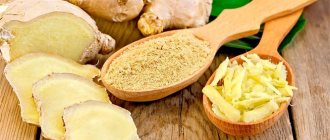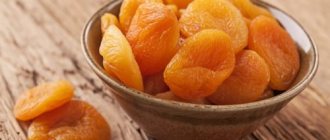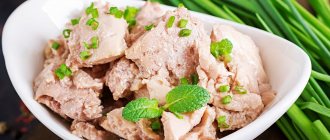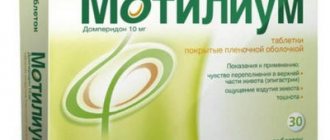The nutritional value of dried fruits is unusually high.
If the drying technology is followed, the valuable components in apples, pears, plums, and grapes are not only preserved, the amount of some even increases. Dried fruits have immunostimulating properties, are good for the heart and blood vessels, and restore a weakened body after a long illness. In cooking, dried fruits are used to prepare compotes, various desserts, and salads. For gastritis, dried fruits in their natural form are not consumed, let’s figure out why.
What experts say: is it possible or not?
Nutritionists recognize the benefits of dried fruits only if they are properly prepared. During the industrial drying process, some technological tricks are used that are not always useful for humans. Some manufacturers pre-soak the fruit in a hot soda solution - the skin becomes thin and weak, and the subsequent drying process is accelerated. Valuable elements perish ingloriously in a hot solution; you will not get any benefit from such a product.
Some production facilities still use wood-burning ovens to dry fruits and vegetables. Not only firewood is used as fuel, but also raw materials that are not at all environmentally friendly - garbage, rubber, even gasoline. It is clear that such products can be harmful to health.
The next stage is presentation. Another production trick is the use of chemical dyes. The appearance of natural dried fruit is unattractive and pale, but if the raw material is treated with dyes, the product takes on a very appetizing appearance.
Important! You can only eat dried fruits that have been dried in air or in the oven with your own hands. Then you can be confident in their safety and benefits.
The average calorie content of the product ranges from 230 to 360 kcal per 100 grams.
When buying, choose
For some reason, we always immediately notice everything bright and shiny. Dried fruits are no exception in this case, and this can let us down in terms of purchasing a quality product. Remember: “all that glitters is not gold.”
Bright, richly colored dried fruits indicate that they have undergone chemical treatment rather than their natural appearance.
If they shine, it is possible that they were treated with glycerin. The normal look should have a matte finish. The golden color of raisins indicates that they acquired their beauty as a result of treatment with sulfur. You should also not buy dried apricots that have a bright orange color. However, this is a topic for another discussion.
Justifying the ban
Doctors do not recommend consuming dried fruits for gastritis due to the following reasons:
- Without exception, all dried fruits have a hard fibrous structure; in order to digest them, the stomach requires a large amount of gastric juice. Most known dried fruits increase acidity.
- Due to their hard and tough structure, dried fruits can injure a sore stomach. It is especially dangerous to consume the whole product with erosive and atrophic gastritis.
- The traumatic property of dried fruits also manifests itself in gastritis with unchanged and low acidity. Coarse fibers can cause inflammation of the mucous membrane.
Alternative options
For normoacid and hypoacid gastritis, you can prepare compote or jelly from a mixture of dried fruits. Pears, apples, plums, and prunes must be removed from the drink after preparation. In small quantities, you can consume dried fruits pre-soaked in water and chopped.
For hyperacid and erosive gastritis, compotes and jelly are prepared only from dried pears and quinces. Other types of raw materials increase acidity.
Authoritative opinion. We are impressed by the opinion of nutritionist, Doctor of Science of the Russian Academy of Natural Sciences, Professor A.V. Kovalkov, who sees no point in consuming “fruit mummies” in large quantities just because today fruits and vegetables can be purchased fresh at any time of the year. The doctor also draws attention to the high content of light carbohydrates in the product. If you use them often, you will inevitably gain excess weight.
Now let’s look at each type “by name”. Let's start with the most common and familiar ones.
Fruits for ulcers and gastritis
Home — For the public
- Map of medical organizations
- Vaccination
- Clinical examination
- Fluorography
- Addresses and opening hours of clinics
- Emergency rooms
- Oncology
- Where to take an HIV test
- Healthy child's office
- Services
- Prevention of CVD
- Disease Prevention
- World Patient Safety Day
- Newspaper "Medical News"
- specialist
- School of Health
— Disease prevention
- HIV infection
- All about vaccination
- All about proper nutrition
- Hepatitis
- Flu
- Dementia
- Schoolchildren's health
- STD
- Tick-borne encephalitis
- Whooping cough
- Measles
- Legionellosis
- Meningococcal infection
- Oncology
- Acute intestinal infection
- Pediculosis
- First aid
- Pneumococcal infection
- Pneumonia
- Prevention of rabies
- Dependency Prevention
- Rotavirus infection
- Diabetes
- Cardiovascular diseases
- Injuries
- Tuberculosis
- Tularemia
- Physical activity
- Obstructive pulmonary disease
- Exotic infections
- Ecology
- Why is swimming in ponds dangerous?
— All about proper nutrition
- Health plate
- For young and expectant mothers
- Food as prevention
- Interesting articles
- Culinary tricks
- Parents about children's nutrition
- Find out your body mass index
- Let's lose weight together
- Quest “Food for life”
— Food as prevention — Fruits for ulcers and gastritis
People suffering from gastritis must follow a fairly strict diet, in which they are allowed to consume a limited number of foods. Food should be soft, gentle, not too warm or cold, so as not to cause irritation or increase inflammation of the stomach walls. In this case, the patient’s diet should be balanced.
Try to eat all fruits infrequently; it is still fiber, which is not so easily digested in large quantities.
Apples
It all depends on whether the patient has high or low acidity. You can only eat sweet varieties of apples baked in the oven, but you must peel off the skin from them and only if you have a non-spicy form.
Watermelon
Watermelon is a rather unusual berry that can also be consumed for gastritis. If you consume 2-3 pieces a day, you can cleanse your body of toxins and waste.
Bananas
They are recommended to be eaten only in cases where the patient does not have problems with flatulence, bloating, indigestion, etc. Bananas contain a lot of useful substances and elements that have a beneficial effect on our body. But remember that for gastritis, only the attending physician can authorize any such product.
Strawberry
Thanks to strawberries, the patient’s metabolism is normalized, immunity is increased, the area of damage to the stomach walls is reduced, and it also helps to overcome inflammation and the formation of damage. It is also recommended to eat it if you have an ulcer.
Pears
Perhaps this is the healthiest fruit. They remove toxins, fats and other substances from the human body and normalize intestinal function. But remember to always strike a balance between enough and too much. Otherwise, bloating and frustration are the least that even a healthy person will have to face.
Sweet plums
Without the skin, it is very easy to digest for these diseases.
There is a separate category of fruits and berries that UNDER NO CIRCUMSTANCES SHOULD BE ON THE MENU OF A GASTRITIS PATIENT. In any case, they will cause a deterioration in health and provoke the appearance of ulcers. And even after a person is completely cured of gastritis, they should be treated with caution:
Citrus
Lemons, oranges, tangerines, grapefruits, limes and other citrus fruits are taboo for all those who have gastritis. You can't even add them to tea. Otherwise, you will experience heartburn and stomach pain.
Grape
Never, under any circumstances, eat grapes if you have even the slightest problem with the gastrointestinal tract. The fact is that it takes quite a long time to digest and begins to ferment, causing discomfort, colic, heartburn, nausea, bloating, vomiting and other unpleasant symptoms.
Melon
Melon is a rather heavy product in itself. It will take a lot of time and energy for even a small piece to be digested. Because of this, the food in the stomach begins to ferment. Therefore, if you have gastritis, ulcers and other problems with the gastrointestinal tract, you should not use it.
Peaches
They have a fairly strong laxative effect, plus they cause increased production of gastric juice. But even those with low acidity are also not recommended to eat them.
Kiwi
Now you know what fruits and berries you can eat if you have gastritis. But remember that each person’s body is individual. Some may experience a violent reaction after eating bananas or strawberries, while others will only feel better after eating these delicacies.
And do not forget to consult a specialist first. Don't experiment, don't act at random. And, most importantly, get treatment, follow the doctor’s recommendations and eat properly not only for gastritis and ulcers.
Apples
The calorie content of the product is 231 kcal/100 grams.
The vitamin and mineral concentration in dry apples is higher than in fresh ones. They contain vitamins B, C, PP, and beta-carotene. Dry apples are rich in potassium and phosphorus, they contain iron, calcium, and antioxidants.
The product contains coarse dietary fiber, pectin, and fiber. Useful for atherosclerosis, heart disease, and exhaustion. For gastritis, it is used to prepare various dishes. Use only after heat treatment is permissible.
Making compote
Compote of dried apricots for gastritis will be a healthy drink. Dried fruits must be washed and then cut or minced through a meat grinder. The compote does not injure the walls of the stomach and at the same time retains the benefits of the product.
Dried apricots should be used with pears. These fruits will make the drink sweet. The fruit must be boiled, after which the drink should stand for a while. If desired, you can add honey (1 spoon). The resulting drink is tasty and healthy. Dried apricots and prunes can be used for gastritis. These dried fruits also make a wonderful drink.
Pears
Indicated for cooking dishes with high acidity, but are used only after preliminary soaking or heat treatment. Dry pears contain almost no organic acids, but they contain pectins and tannins that protect the mucous membrane. The vitamin and mineral composition of dried fruit is similar to that of fresh fruit. Dry pear has mild diuretic and fixative properties, it has an antipyretic and antitussive effect. The calorie content of the product is 246 kcal per 100 grams.
Selection of dried fruits
There are several tips to help you choose high-quality dried fruits that are suitable for consumption in their pure form and for making compotes:
- The fruits must be whole.
- You should not choose products that are rotten or damaged.
- Dried fruits should not be too fatty. By their appearance, it can be determined that they have been treated with glycerin or another fatty substance.
- Dried fruits cannot retain their appearance for long. If such were found, then they were subjected to heat treatment. Fruits dried naturally after some time become gray or take on a dark shade.
For nutrition and treatment, it is necessary to purchase only high-quality dried fruits. Is it possible to use them for gastritis? It is better to consult your doctor. Perhaps in some cases he will allow you to include this product in your diet.
Figs
The beneficial properties of figs are due to their high potassium content, so they are recommended to be included in the menu of cardiac patients.
Figs also contain iron, sodium, magnesium and calcium, but in smaller quantities. Rich in B vitamins, contains vitamin A and antioxidants.
It has pronounced laxative properties, which is important for constipation and intestinal diseases. Figs are endowed with antitumor and antitussive properties; they are actively recommended for the prevention of eye diseases and improvement of vision. For gastritis, it is used only after heat treatment.
Important! Before drying the figs, they are dipped in thick sugar syrup. Therefore, figs are not recommended for overweight and diabetic patients.
Calorie content of the product is 256 kcal / 100 grams.
Action of dried apricots
If you eat dried apricots every day, without exceeding the norm, then it will be useful. Regular consumption of this dried fruit improves:
- Work of the heart and blood vessels. Those suffering from heart disease receive potassium and magnesium necessary for the heart muscle.
- State of the digestive system. Dried apricot is recommended for constipation. In case of such a problem, 5 dried fruits should be washed, brewed with boiling water overnight, and in the morning, eat the fruits and drink the infusion. This treatment restores intestinal function within a month.
- Kidney function. An infusion of dried apricots removes excess fluid from the body, but compared to diuretics it does not deprive it of valuable components.
- Vision. Carotene in dried apricots is useful for ophthalmic ailments.
Dried apricots serve as cancer prevention. The microelements they contain improve the body's resistance and prevent cancer cells from developing. This product increases the number of blood cells, so it is recommended for those with low hemoglobin. The healing effect of dried apricot increases if consumed with other dried fruits.
Dates
Palm fruits surpass even figs in magnesium and potassium content, so cardiologists actively recommend them to their patients. It has been proven that when eating 7-10 dates daily, the risk of strokes and heart attacks is several times higher. The vitamin and mineral composition of dates is very convincing; they contain vitamins C, A, PP, B 1, B 2, B 5, B 6, and the number of microelements is truly record-breaking. Dates contain:
- Calcium;
- Chlorine;
- Sulfur;
- Zinc;
- iodine;
- selenium;
- copper;
- vanadium;
- phosphorus;
- manganese;
- iron;
- sodium;
- titanium;
- chromium;
- nickel;
- selenium;
- boron;
- fluorine and others.
Dates strengthen defenses, remove harmful substances, reduce cholesterol, improve potency, and strengthen the muscle layer of the uterus. Dates have a beneficial effect on digestion, but are not recommended for gastritis in their natural form due to the hard structure of the outer skin. Consumption in desserts is permissible for gastritis only after heat treatment.
The calorie content of one berry is 23 kcal; 100 grams of the product contains 257 kcal. High calorie content is a limitation for the consumption of dates by overweight patients.
Such different compotes
Compote of cherries, plums and apples is useful for hypoacid gastritis, but contraindicated for hyperacid gastritis. Unfortunately, not every dried fruit compote can be beneficial for gastritis, although, it would seem, what harm can fruit drinks cause if the fruits are properly dried? retain many nutrients. Compote made from dried cherry and plum fruits can generally be therapeutic for gastritis, since it contains vitamin B-2, which helps restore damaged mucous membranes. However, it should be clarified that this drink will be beneficial in case of low acidity of gastric juice. With a hyperacid form of gastritis, such a compote can significantly harm the stomach. Apple compote will also be useful for low acidity.
Prune compote
If we talk about prunes in a little more detail, and they are worth it, you should know that they are a storehouse of microelements and vitamins. It is enough to remember magnesium, potassium, iron, phosphorus, many provitamins, vitamins “B-1”, “B-2”, “PP”, and others to recognize this product as worthy of attention. In dry form, even a healthy person would be harmed by eating more than 15 pieces per day, let alone a person suffering from gastritis. But adding prunes to compote in small quantities is allowed, and is even shown as a laxative. Just be careful not to drink too much, as you may end up with diarrhea and heartburn. However, to the question of whether prune compote is possible for gastritis, the answer from different doctors may be diametrically opposite.
Raisin compote
Is it possible to eat raisins for gastritis? Yes! And its benefits are difficult to overestimate, since it is raisins that can eliminate the pain of irritated stomach walls. In addition, it contains acid, which prevents the proliferation of pathogenic bacteria. Just be sure to take into account that it is better to use seedless fruits, which will mechanically irritate the mucous membrane. And don’t forget - wash the raisins thoroughly with hot water before cooking.
Date compote
Date compote will be useful for gastritis. This small fruit gently improves digestion and normalizes the acidic contents of the stomach. Such a drink is not recommended only if you are intolerant to dates, which, however, also applies to other fruits.
Apricot compote
In combination with other dried fruits, apricot compote is considered useful. This fruit differs from apricots in that, once ripe, it remains on the tree until completely dry. So the fruit, gradually losing moisture, retains a very large amount of useful substances, including vitamins and microelements. The main wealth of the fruit is carotene, which is converted into vitamin A in the body. Uryuk cleanses the body well thanks to the dietary fiber contained in its composition. However, it can also be a harmful product, but only if it is consumed in significant quantities.
Cherry compote
Cherries bring undoubted benefits to the body. The antioxidants included in its composition enhance cell regeneration (renewal), which also has a positive effect on gastritis. In addition, this berry prevents the occurrence of malignant tumors. Cherry compote is indicated for gastritis with high acidity. The only contraindication for it would be intolerance.
Quince compote
Quince compote will be healthy and tasty - perhaps the only product that is consumed only in processed form. But you need to know that you cannot eat quince seeds, they are poisonous.
Peach compote
Peaches in compote significantly improve digestion. The copper and iron they contain are essential in the treatment of gastritis, preventing constipation and heartburn.
Pear compote
Pear compote will be no less useful for gastritis and tasty; besides, pears are more familiar and closer to us than exotic fruits. A lot of vitamins, tannin, iron, which is easily absorbed, all this speaks in its favor. And, attention: pears should be added to all compotes if you need to reduce the acidity of gastric juice.
Prunes
If you choose between fresh and dried plums, choose fresh fruits.
Despite their high nutritional qualities, prunes are considered heavy food for the stomach, so dried fruits in their natural form should not be consumed if you have gastritis. Prunes are recommended for diseases of blood vessels, heart muscle, and cancer. It has a pronounced laxative and mild diuretic property. Prunes contain vitamins B, A, E, PP, K, C, which are important for hematopoiesis and the fight against free radicals.
Dried fruit for diseases of the liver and gall bladder. Zinc, iron, magnesium, potassium and calcium have a positive effect on brain activity and nerve conduction. Contains organic acids, pectin, fiber. For gastritis, it is recommended only in crushed form after preliminary soaking or heat treatment.
Calorie content is 231 kcal per 100 grams of product.
Apple compote for the winter with gastritis recipe
Apple compote for the winter is prepared from fresh apples. It is used for atherosclerosis, diseases of the liver, bladder, kidneys, urolithiasis, inflammation of the joints, arthritis, and also for weight loss.
Pectin from apple compote normalizes intestinal function (calorizer). The high content of sugars and organic acids promotes rapid recovery after physical activity. Apple compote is useful for anemia and gastritis with low acidity. Apple compote is contraindicated in case of exacerbation of gastritis, peptic ulcer and pancreatitis.
Raisin
A distinctive property of dried grapes is the ability to increase the amount of minerals and vitamins in their composition. Raisins are recommended for heart disease; raisin compote restores strength well; it is recommended for exhaustion. Raisins calm the nervous system and are indicated for increased excitability and insomnia. It has a pronounced antioxidant effect and has an antimicrobial effect. Calorie content of 100 grams of raisins is 264 kcal.
If you have gastritis, you should not use it in its natural form. If the dry product is pre-soaked for an hour, it can be eaten even with hyperacid gastritis, but in limited quantities - 50 grams as a dessert after the main meal. It is allowed to add soaked raisins to cottage cheese, yogurt and desserts, as well as at the end of cooking when preparing porridge.
Dried fruits for gastritis with high acidity
If there is increased gastric secretion, it is not recommended to consume dried fruits. Especially in its original commercial form, which we know well. The fact is that such dried fruits contain practically no moisture, and their pulp turns from tender to coarse.
If there is increased gastric secretion, it is not recommended to consume dried fruits.
With increased secretion of hydrochloric acid, the following recommendations should be followed:
- It is not allowed to consume dried fruits directly in dry form;
- be sure to infuse the products in water for at least several hours;
- prepare jelly/compotes from them, from which it is better to remove the dried fruits themselves before use;
- In case of acute gastritis, it is prohibited to include dried fruits in the diet menu in any form.
During periods of remission, you should not get carried away with them either. It should be noted that the most favorable for hyperacid gastritis are dried pears, quince and sweet bloc varieties. Now let’s look at all the most common components that make up dried fruits.
Dried apricots
Dried apricots are prized for their high potassium content.
In addition to this element, they contain magnesium and calcium, zinc and sodium, and a wide range of vitamins. Dried apricots stimulate digestion, have an antioxidant effect, restore strength, and cleanse the liver. The calorie content of the product is 231 kcal per 100 grams.
For gastritis of any form, dried apricots in their natural form are not recommended. Allowed after heat treatment and soaking, as part of other dishes.
Contraindications to the use of dried apricot
- The product is not recommended for use by people with serious stomach disorders or intestinal dysfunction. There is no need to take dried apricots for gastritis with high acidity and ulcers. In large quantities it causes abdominal pain, bloating and diarrhea.
- If the product is processed poorly, it is better to refrain from consuming it. Store-bought dried apricots are treated with chemicals that make the product visually attractive. If a dried apricot is unnaturally orange, the fruit may have been treated with a special toxic substance - anhydride. If the substance enters the body, it causes poisoning. It is recommended to dry the apricot yourself.
- If gastritis worsens, it is better to avoid the product.
- You should not eat apricots on an empty stomach; the acid in the product provokes an aggravation. When diagnosed, it is recommended to eat up to three pieces of dried fruit per day.
How to dry fruit properly
You need to dry the fruit yourself. Only because you cannot be sure of the quality of dried fruits sold on the market. Let's tell you just about one trick of unscrupulous sellers - if you pour several bottles of sweet water or lemonade into a container with dried fruits, the dried fruits gain weight and take on a more attractive appearance. Remember this.
The best solution is to purchase an electric dryer for fruits and vegetables and use it according to the instructions. If you decide to dry fruit in the oven, the temperature should not exceed 50 - 55 degrees. The third, healthiest and vitamin-preserving option is air drying in the shade. True, this process takes 7–8 days. This is how our ancestors dried fruits and vegetables.
Contraindications
But dried apricot can also be harmful to health. It may be an allergen that causes gastritis. In case of exacerbations, you should immediately consult a doctor. Most experts believe that dried apricots for gastritis can be dangerous during an exacerbation, so during these periods it should be abandoned.
Dried fruits purchased from the market are usually treated with harsh chemicals. Acids located on the surface of dried fruit lead to complications of gastritis. Dried apricots should not be eaten on an empty stomach. You can prevent complications if you eat no more than 3 fruits at a time.
Cooking the “correct” compote
To prepare a healthy drink, use a glass of dried fruit mixture for every 2 liters of water. Place pears and apples into the compote first, after 20 minutes all other dried fruits. In order for the compote to have beneficial properties, you need to prepare it as described below.
Cooking technology
- Wash dried fruits thoroughly and soak for 30 minutes in cold water, let them swell a little.
- Boil water with sugar.
- If you use sweet dried fruits, you don’t need to add sugar.
- Place dried fruits in boiling sweet water and after boiling, reduce the heat.
- Cook for 30 minutes.
- After preparing the compote, cool well and remove the boiled dried fruits.
If you have gastritis, drink the compote warm; hot and cold drinks can cause inflammation.
How to properly consume dried fruits for gastritis
Dried fruits are very tasty, healthy and nutritious, so many gastritis sufferers try to break or circumvent the strict ban. Indeed, in some cases, with gastritis, you can eat prunes, figs, adhering to certain rules. One of these conditions, for example, is low acidity, a chronic form of the disease. Atrophic gastritis and winter vitamin deficiency may also be an indication for inclusion in the diet.
How to use dried apricots and prunes correctly for gastritis
It is not for nothing that these products are combined into one group, because they have similar properties. For gastritis with increased acidity, it is better to avoid dried plums and apricots altogether. In other cases, it is allowed to make puree.
For gastritis with increased acidity, it is better to avoid dried plums and apricots altogether
To do this, you need to boil the dry fruits until soft (this will take 30-40 minutes). After which, drain the broth and grind the resulting mass until smooth.
How to use raisins correctly for gastritis
Raisins are added to many dishes, so it is difficult for gastritis sufferers to completely give up dry grapes. This product is definitely prohibited in case of high acidity. But people who want to improve acid secretion can consume 15-20 grams of raisins per week. In addition, raisins have antiseptic properties, which means they can negatively affect the bacteria H. Pillora. To enhance the antiseptic effect, you can eat raisins sprinkled with cinnamon.
How to use fig correctly for gastritis
Figs (the second name for figs) can be consumed for gastritis with low acidity, complicated by frequent constipation. Figs are a real record holder among other dried fruits in terms of dietary fiber content. But due to the presence of a large number of small and sharp seeds, figs are prohibited in the presence of erosions and ulcers.











